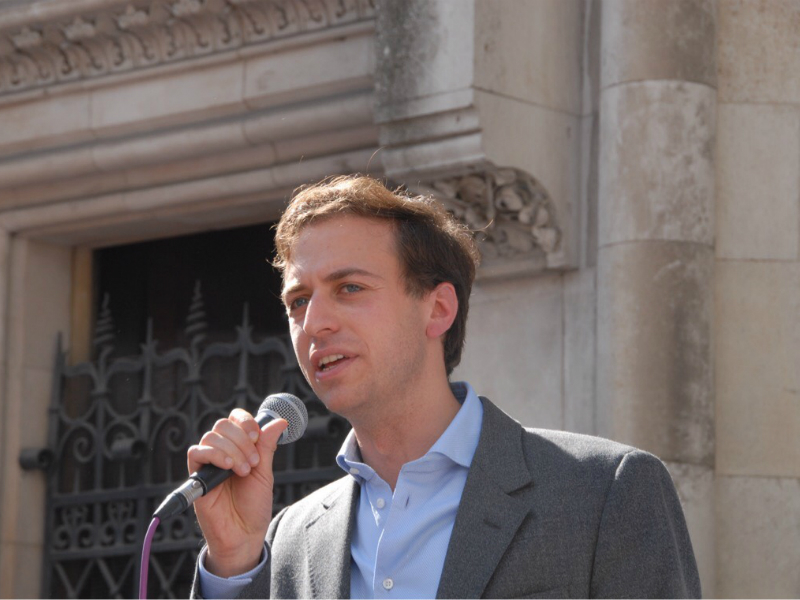Using courts to fight anti-Semitism, whether in criminal or civil cases, or shaming prosecutors into action, is proving an effective tool in Britain, and may have valuable lessons for Canada.
Gideon Falter, the volunteer chairman of London, U.K.-based Campaign Against Antisemitism, explained that the tactic is about more than “lawfare” (using the legal system to achieve a particular objective).
“That’s not all we’re doing,” Falter said of his organization. “We are upholding people’s rights. We are saying Jews are equal citizens under the law, just like everybody else. We are upholding victims’ rights and, in the process, changing the law.”
Falter was recently in Toronto to deliver two talks, which were sponsored by B’nai Brith Canada and Canadians for the Rule of Law.
Founded in 2014 in the wake of Israel’s war in Gaza and resulting anti-Semitic fallout in London, Campaign Against Antisemitism is run by about 900 volunteers, including some of the U.K.’s top lawyers, and is dedicated, as its website states, “to exposing and countering anti-Semitism through education and zero-tolerance enforcement of the law.”
READ: FORD PLEDGES TO ‘TAKE ACTION’ AGAINST AL-QUDS DAY RALLY
Falter, a 34-year-old law school graduate who went into business, said one of the group’s mandates is using British courts to ensure “that if someone commits an anti-Semitic act in the U.K., we can ensure ruinous consequences, be they criminal, professional, financial or reputational. We want to increase the cost of doing business for anti-Semites in the U.K. and deter them from engaging in their activity.”
Cases can include anti-Semitic graffiti, verbal or physical abuse, or anti-Semitism cloaked as criticism of Israel.
The group also encourages private prosecutions when police or Crown lawyers won’t act, Falter noted. It helps with civil defamation lawsuits and pursues professionals whose conduct is governed by regulatory bodies, and all of its services are free. It’s agile, aggressive and innovative, Falter said, “and it’s working.”
But it’s also strategic.
During its first two years in operation, the group turned down every case that was brought before it. “We are very clear that if we take on a case, we have to win it,” Falter said.
However, things have picked up since then. In the last month alone, Falter said, the organization won three cases, each a landmark decision that “has changed the law in Britain.”
Among them was the trial of a neo-Nazi leader who received a one-year jail sentence for a speech – a case the Crown, Falter said, was “forced” to prosecute after a judicial review by his group – and the high-profile conviction of a woman whose songs on YouTube mocked the Holocaust as a hoax.
Campaign Against Antisemitism is “sending a very clear message to anti-Semites. It’s driving them off social media and forcing them to hold their meetings and demonstrations away from the public eye,” Falter said.
He said the group has had an effect. Not only are anti-Semites being driven from the limelight, but polls in Britain suggest a decrease in anti-Semitic sentiment among the public.
“We’re able to make anti-Semites afraid to openly express their views, and I believe that people are starting to re-appraise their views of Jews.”
Falter said the organization’s mission is not about enacting new hate laws. “What we need is to enforce the laws more effectively.”
Falter added he feels like a visitor to Canada “from the not-too-distant future.”
“What’s happening in Britain is maybe only two or three years ahead of what Canada has in store,” he warned. “I’ve grown up in one of the best countries in the world to be Jewish, and we’re losing that. The country is changing and it will change irreparably unless we fight hard and effectively now.”
Canada has some choices to make, he said.
“I believe that Canadian (Jews) increasingly will be looking at their situation and asking, ‘Do we have a future in this country?’ And that’s a question they shouldn’t be having to ask at all.”
It’s “vitally important that Canada take some of the same action we’re taking in Britain.”
